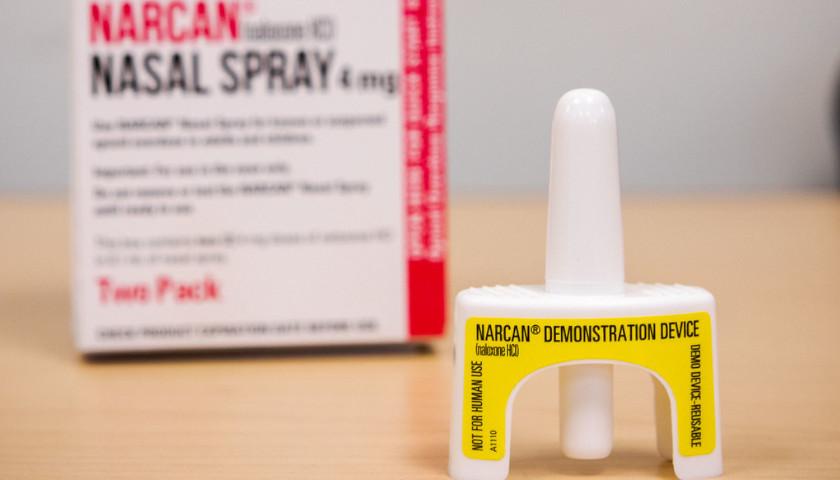New Tennessee Attorney General Jonathan Skrmetti joined Dan Mandis on Nashville’s Morning News, broadcast weekday mornings on Nashville radio station 99.7 WTN to discuss Vanderbilt University’s transgender surgeries on minors, America’s fentanyl crisis, and Title IX gender identity executive order.
Mandis: Going to go right to the newsmaker hotline and welcome into the program the new Tennessee Attorney General Jonathan Skrmetti. Jonathan, how are you?
Skrmetti: Great, Dan. How are you?
Mandis: I’m good. So I appreciate you joining us. You have been a very busy man. You just were sworn in on September 1, so about what, three weeks ago?
Skrmetti: Yes, it’s three weeks today.
Mandis: So you’ve seemingly done a lot in the last couple of weeks, so you definitely hit the ground running. I want to ask you, first of all, just here in the last couple of days, this Vanderbilt story blew up. Matt Walsh and The Daily Wire, they were just on here in one of the previous segments exposing Vanderbilt University Medical Center of gender mutilation with trans surgeries on minors.
Governor Lee and others calling for investigations. Let me first off, I know you’ve been quoted as saying that you’ve got some concerns. What’s your perspective on all of this?
Skrmetti: Well, there are a number of concerns that have been raised and there’s some evidence that’s been put out there relating to a number of potential things. I’ve heard from the governor’s office about this, and I am concerned.
I don’t want to get over my skis talking about what might happen, but I’ve got four kids and I’m very concerned about situations that may be causing irreversible harm. To the fullest extent that state law applies to activities, I think it’s important that we make sure there is compliance.
Mandis: Yes, and I did have Jack Johnson on earlier, who is a state senator, and they’re going to look at beefing up some of these laws come January as well. So I’m almost positive this won’t be the last time you and I speak about this.
Now, a couple of other things you’ve done, and there’s a lot. This week you have asked the White House for a multi-agency response to the fentanyl crisis, asking the Biden administration to define it as a weapon of mass destruction.
I thought that was interesting because I’ve never actually thought about that. But you’re right. I mean, we got over 100,000 people that are dying every single year because of the fentanyl crisis, and you’re asking the Biden administration to determine it or define it as a weapon of mass destruction.
How would that help in the effort to help Middle Tennesseans and people across the country as they get addicted and ultimately die from fentanyl?
Skrmetti: Well, two things. First, it adds more resources to the site. It’s going to bring other agencies in that are not currently engaged in looking at fentanyl, because this is a huge systemic problem. The casualty rate is catastrophic.
The devastation to families, both for the people who pass away and for the people who are left addicted or ruined by their addiction, it’s just brutal. But the second thing I want to say is, this was not a metaphorical request. Fentanyl is devastating.
And you can make the argument that it’s a weapon of mass destruction just based on the raw numbers of damage. But this is literally a potential weapon of mass destruction that could be used to inflict mass casualties.
And so I think it’s important that law enforcement agencies and national security agencies, past the preventing of terrorist attacks, recognize that this is a potential vector for terrorism. We’ve seen it used overseas, weaponized in ways that can kill substantial numbers of people, and have killed substantial numbers of people.
And there is some evidence – I don’t want to get into detail too much because I don’t want to put out there ideas of how this could be used. But for a very low dollar cost, somebody could use fentanyl to kill very large numbers of Tennesseans, very large numbers of Americans.
And so it’s not just the idea that fentanyl, as it exists, is a problem. It is, and we need to do everything we can to fight it. But it literally is a weapon of mass destruction. It can be used to kill thousands of people at one time.
And there are other weapons of mass destruction that have legitimate uses. I’ve seen some pushbacks saying that fentanyl is used in medicine. Fentanyl has legitimate uses. Well, there are radiological materials that have legitimate uses, but they can also be weaponized.
And we just need to make sure that all the folks out there keeping us safe from terrorist attacks are aware of the potential here, know how to respond, and have the resources to both protect us and react to an attack if one ever happens.
Mandis: Another case involves the Biden administration and the redefinition of Title IX. Now, I’ve covered how they want to include sexual orientation or gender identity into the definition of sex.
There are so many issues involved in this move by Biden, from women’s sports to scholarships. What was the overriding factor for you in objecting to this move by the president?
Skrmetti: This was federal overreach that interferes with the state’s ability to make its own decisions. I’m not an elected attorney general. I turn to the elected policymakers in the state to know what the state’s policies are. And our elected officials, the governor, the legislature, have made very clear where the state’s interests lie.
We have a representative democracy. Everybody learned in school, or I hope everybody learned in school, that the legislature makes the laws, that people elect their representatives and those representatives decide what the law should be.
They pass the laws, and then we’re all bound by the words of the law that they pass. Well, here you have an administrative agency, one of many – the president issued an executive order telling every agency to rewrite the law in ways that the legislature that passed it never would have comprehended.
In fact, there are pieces of the statute that say that it is permissible to engage in sex discrimination. For instance, you’re allowed to have an exclusively woman’s dorm under Title IX, but these new regulations just upend the existing, and they do so without any democratic accountability.
It’s an agency saying, we are going to rewrite the law and you’re all going to be stuck with this. But that’s just not the appropriate process here.
This is a matter that’s best left up to state governments, and this is the federal government illegitimately reaching in and seeking to supersede that state law. And so it’s my job to push back and ensure that we have the separation of powers that our constitutional system guarantees.
Mandis: Let’s talk about soft-on-crime district attorneys. We have a couple here that have been accused of being soft on crime in Memphis and Nashville. We all know the crime is outrageous in both cities, especially Memphis, making the whole state look bad, quite frankly. Cops are demoralized.
We have an abundance of openings across the state in law enforcement, and bail reform. Always, of course, a big discussion as the attorney general for the state of Tennessee talking about your approach to this pervasive issue.
Listen to the full interview here.
– – –
Background Photo “Tennessee Attorney General Building” by Tennessee Attorney General.








